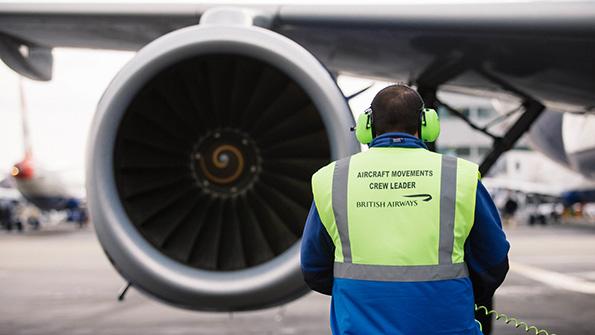Commentary: UK Should Recognize Key Role Of Aviation Ground Support

The UK government has declared that it will be a return to “business as usual” for the aviation industry this summer, with airport takeoffs back to pre-pandemic capacity. The government is also backing the Generation Aviation campaign to get more young people into this exciting, highly skilled sector. These are strong votes of confidence, but there’s much more to be done before the sector can fully bounce back from the years of disruption caused by the pandemic.

In May 2020, I launched the Future of Aviation all-party parliamentary group to campaign for Britain’s aviation sector following the COVID-19 pandemic’s negative impact. I was motivated to do this because I believe in the value of the aviation sector and the people who work in it. The sector has been through so much, and the government owes it to all individuals, from the pilots to the ground services staff, to provide stability of this industry.
Ground services, in particular, have often been sidelined when it comes to policy and political considerations around the aviation industry. Ground services are the backbone of the aviation industry, providing critical services including the handling and processing of cargo; passengers and baggage; security services; aircraft fueling and cleaning; and much more.
The UK aviation ecosystem is an interdependent triangle with airports, airlines and ground services holding up the sector. Without ground services, the UK’s skies would be empty and critical services, from delivery of essential medical and food supplies, to commuting and connectivity, would be adversely impacted.
As a highly interconnected industry, the UK’s aviation ecosystem, and in turn the wider economy, depends on each of the component parts having the capability to weather disruption. The specialist expertise of ground services as a piece of critical national infrastructure is clear. It is essential when the weather deteriorates and de-icing specialists are required, for the maintenance of aircraft equipment, the baggage handling and passenger security processes, and for the transit of critical cargo such as PPE during a pandemic. The need for ground services is ever-present, especially if Britain is to achieve its aim of being regarded as a global leader in aviation.
Aside from the services themselves, the aviation ecosystem is an essential component of regional and international connectivity and the movement of people and goods. This connectivity is put at risk when aircraft are grounded, or when ground services are not able to operate at necessary capacity, as we saw during the strike disruption over the Christmas holidays.
The government needs to recognize the importance of this critical sector to our connectivity, safety and economy, putting equal emphasis on its importance. The government is currently legislating to tackle disruption from industrial action in the rail sector but should also acknowledge the need to address disruption in aviation, particularly in ground services.
There’s a need for the government to get around the table with industry leaders to discuss how to approach the key issues they face, including industrial disruption and serious labor shortages because of onerous regulation that holds the UK back from being a world leader.
I’m optimistic about the future of Britain’s aviation industry on the basis that I hope the government will take the necessary steps required to ensure that it is able to thrive for the future.
By backing the aviation sector, by which I mean the entire aviation ecosystem, I believe that the future of aviation and ground services has the potential not just to bounce back from the pandemic, but to reach new heights.
Henry Smith is a Conservative Member of Parliament for Crawley, UK, a constituency that includes London Gatwick Airport.
